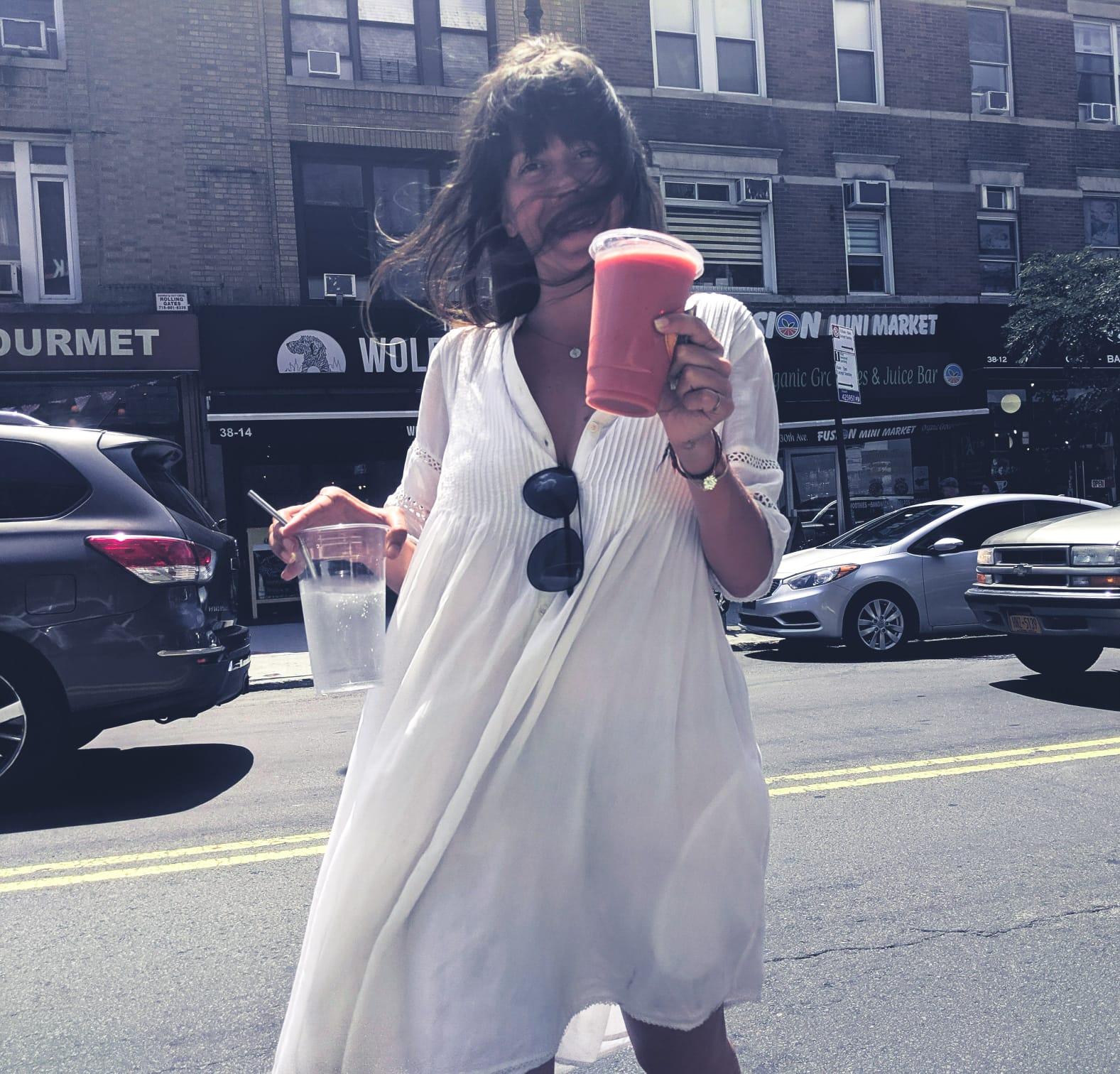Not your average alcoholic
I recently had the pleasure of being on Lauren Hawk’s podcast To Be Human (episode is out on Wednesday). During the episode we talked all things dating of course and we also talked about another topic very close to my heart, sobriety. The convo was so good that I wanted to touch on the same subject here— I’m an alcoholic, but I don’t have the average alcoholic story.
What I mean by average is the ended up in jail or got hospitalized stories of addiction. Those are what we would call hard bottoms. I share about my drinking history in depth here and I didn’t have a hard bottom. I had a lot of soft bottoms. I started blacking out from drinking at 16. I had way more nights than I can count where I blacked out and didn’t know how I got home. I had many a nights that I put myself in very bad situations and drank away all my ability to notice or care. I was sexually assaulted one of those nights. I feel lucky it was only once. While it wasn’t a hospital bed or a jail cell, I definitely had some bottoms that eventually led me down the road of getting sober. It took me a very long time to admit I had a problem because I was functioning.
I think that’s a trap that gets set for a lot of humans— if we can show up to work on time and do at least an okay job than we don’t have problems with substance abuse. Was I able to show up to work? Yes. Was I mostly hung over? Oh yeah. Did I show up still drunk or high on some occasions? Yes I did. But, I could still show up so I didn’t think there was anything wrong with the way I was drinking. I was comparing my bottoms to others’ and because mine seemed small potatoes in comparison, than I must be doing alright. Wrong.
I was so far from alright! I wanted to write about this for two reasons. 1. You can have a problem and still be a functioning human. It doesn’t have to look like you wake up buy a bottle of vodka and drink it alone before you go to work. Having a problem with alcohol can look like you getting blacked out a few times (or even once!) times a week and not remembering how you got home. Your journey is yours and you get to decide if partaking in a neurotoxin (alcohol) works for you or not. Your relationship to alcohol or a substance doesn’t have to look like anyone else’s to be a problem for you. 2. It can seem really scary to admit you have a problem. Right before I found AA to assist in my sobriety journey, I was told I was an alcoholic and I should go to AA. I was PISSSSSSED. How dare that person tell me I am an alcoholic?! They didn’t know what they were talking about. I immediately got defensive with the person and shut down. What we feel need to protect, we will defend. We feel we need to protect our shadow because if others were to find out about them than we wouldn’t be loved. I’m here to tell you that nothing is further from the truth. I found more love and acceptance for myself and from others in sobriety than I ever did while in my addiction.
Here’s the thing— labels don’t have to work for you either to want to give up a substance that is no longer working for you. For me, when I was invited by friend to AA, the moment I heard the first share I felt a huge sense of relief. I realized the monster that had been on my back for SO long had a name and the name was alcoholism and there was a way out. It was incredibly empowering because the light got turned on and I felt free from the weight of keeping myself and others in the dark. The lightness I experienced walking out of my first meeting was transcendent. I felt a rush of knowing that everything was truly going to be okay. The label truly gave me freedom. However, I know a lot of people balk at the idea of calling themselves an alcoholic. I get it! I did too when someone put the label on me. We are so conditioned to think alcoholism and addiction look a certain way and that addicts are less than their non-addict peers. I am not less than. My struggle with addiction is a SUPER POWER. It led me on a journey that strengthened me and helped me know myself deeply.
So, if you are reading this and nodding along I see you. You don’t have to label yourself or attend 12 step meetings to start your own healing journey away from drinking. You can have a problem and be functional. You can have a problem and still be a wonderful person who has a lot to offer the world. If you’re feeling like drinking isn’t serving you or you’re not able to have just one drink and leave it there than I encourage you to start investigating the reasons why you drink and the way you drink.
If you’re wanting guidance around sobriety, I look forward to connecting over a session.
Photo by Dylan. Also, please excuse the two plastic cups in my hand. Big time fail!
